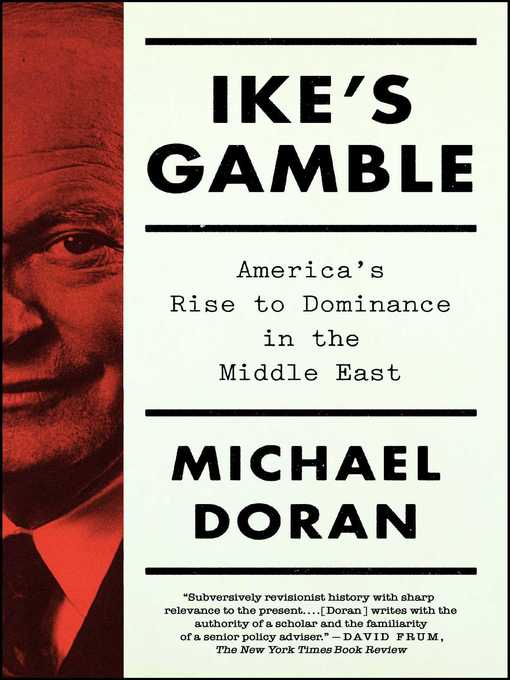
Ike's Gamble
America's Rise to Dominance in the Middle East
کتاب های مرتبط
- اطلاعات
- نقد و بررسی
- دیدگاه کاربران
نقد و بررسی

Seeking to align Egypt with the West, Dwight Eisenhower enacted disastrous foreign policy.A senior fellow at the Hudson Institute and formerly a senior director of the National Security Council under George W. Bush, Doran (Pan-Arabism before Nasser: Egyptian Power Politics and the Palestine Question, 1999, etc.) offers a detailed analysis of the context for the Suez Crisis of 1956, which pitted Egyptian President Gamal Abdel Nasser against Britain, France, and Israel and nearly led to war. Drawing on British and American memoirs, correspondence, and government documents, the author argues persuasively that until 1958, Eisenhower deeply misjudged Nasser, convinced that he would help the U.S. by unifying Arabs against the Soviets in the Cold War. Even before Nasser moved to take control of the Suez Canal--through which two-thirds of European oil flowed--Eisenhower had pressed Britain to withdraw from Egypt, convinced that "the yoke of colonialism" undermined Western efforts to support Egyptian nationalism. But Nasser, Doran vociferously maintains, was never interested in alliance with the West; the young leader had one self-serving goal in mind: to dominate the Arab world. The author characterizes Nasser as devious, power hungry, "an inveterate blackmailer," and "a born manipulator, a man who was never forthright with anyone--including the Americans." Doran focuses closely on Eisenhower's Secretary of State John Foster Dulles and emissary Kermit Roosevelt, who refused to recognize "the disturbing scope" of Nasser's ambitions. Both were anti-imperialists and anti-Zionists; Doran stops short of branding them anti-Semites. They abetted Eisenhower's policy of placating Nasser, even when it became obvious that he was negotiating with the Soviets, allowing them to make "deep inroads into the Arab world." In 1958, Eisenhower finally realized that Nasser was a threat to Western interests; that the U.S. needed to pay attention to inter-Arab struggles, not only the Arab-Israeli conflict; and that "the solution to every problem will inevitably generate new problems." A disturbing history that clearly reveals the dangerous "collective American delusion" about the Middle East, which the author believes still persists today. COPYRIGHT(1) Kirkus Reviews, ALL RIGHTS RESERVED.

September 15, 2016
In 1956, Egyptian President Gamal Abdel Nasser, fresh from the revolution that ousted King Farouk, took possession of the Suez Canal. Britain and France, heretofore operating the canal for their profit, objected and threatened to invade. U.S. President Dwight Eisenhower refused to agree to reasserting colonial control over Egypt, kicking off an unbearably complicated series of events that ultimately failed to halt Nasser's Pan-Arabism or prevent Soviet inroads but led to decades of American influence in the Middle East. In the years since, various interpretations for Eisenhower's actions and their consequences have been offered. Doran, (senior fellow, Hudson Inst., Washington, DC), offers a reappraisal of the diplomatic fencing among the major participants while largely eschewing historiography. He primarily references Foreign Relations of the United States, with limited citations of British and Arab documents, although there are numerous secondary sources. VERDICT A well-documented narrative of complex diplomacy, with supporting roles by Prime Ministers Winston Churchill and Anthony Eden. Historians and specialists in Middle East foreign affairs will be interested in Doran's reinterpretation of the crisis.--Edwin Burgess, Kansas City, KS
Copyright 2016 Library Journal, LLC Used with permission.

























دیدگاه کاربران